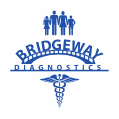





















5007 Summerville Road Phenix City, AL 36867


1910 E. Samford Avenue
Auburn, AL 36830
100 Bascom Ct.
Columbus, GA 31909

Your Results
Your doctor may be able to tell you about some of the results of your nerve studies right after the tests. Your primary care doctor, or the doctor who ordered the EMG, will discuss the full report with you at a follow-
NORMAL:
EMG: The EMG recording shows no electrical activity when the muscle is at rest. There is a smooth, wavy line on the recording with each muscle contraction.
NCV: The nerve conduction studies show that the nerves send electrical impulses to the muscles or along the sensory nerves at normal speeds, or conduction velocities. Sensory nerves allow the brain to feel pain, touch, temperature, and vibration. Different nerves have different normal conduction velocities. Nerve conduction velocities generally get slower as a person gets older.
ABNORMAL:
EMG: Electrical activity in a muscle at rest shows that there may be a problem with the nerve supply to the muscle. Abnormal wave lines when a muscle contracts may mean a muscle or nerve problem, such as a herniated disc, amyotrophic lateral sclerosis (ALS), or inflammation.
NCV: In nerve conduction studies, the speed of nerve impulses is slower than what is normal for that nerve. Slower speeds may be caused by injury to a nerve or group of nerves. Nerve conduction velocities generally get slower as a person gets older.
The results from EMG and nerve conduction studies are used along with your medical history, symptoms, physical and neurological exams, and the results of other tests to help your doctor find out what the problem is or see how a disease is changing.
Q: Will the procedure hurt?
A: During an EMG test, you may feel a quick, sharp pain when the needle electrode is put into a muscle. After the test, you may be sore and have a tingling feeling in your muscles for up to 2 days. If your pain gets worse or you have swelling, tenderness, or pus at any of the needle sites, call your doctor.
With nerve conduction studies (NCV), you will be able to feel the electrical pulses. The tests make some people anxious. Keep in mind that only a very low-
Q: Are these procedures safe?
A: An EMG is very safe. You may get some small bruises or swelling at some of the needle sites. The needles are sterile, so there is very little chance of getting an infection.
There is no chance of problems with nerve conduction studies (NCV). Nothing is put into your skin, so there is no chance of infection. The voltage of electrical pulses is not high enough to cause an injury.

Electromyography (EMG) is a diagnostic procedure to assess the health of muscles and the nerve cells that control them (motor neurons).
Motor neurons transmit electrical signals that cause muscles to contract. An EMG translates these signals into graphs, sounds or numerical values that a specialist interprets.
An EMG uses tiny devices called electrodes to transmit or detect electrical signals.
During a needle EMG, a needle electrode inserted directly into a muscle records the electrical activity in that muscle.
A nerve conduction velocity study (NCV), another part of an EMG, uses electrodes taped to the skin (surface electrodes) to measure the speed and strength of signals traveling between two or more points.

Your doctor may order an EMG/NCV if you have signs or symptoms that may indicate a nerve or muscle disorder. Such symptoms may include:
- Tingling
- Numbness
- Muscle weakness
- Muscle pain or cramping
- Certain types of limb pain
EMG/NCV results can reveal nerve dysfunction, muscle dysfunction or problems with nerve-
EMG and NCV results are often necessary to help diagnose or rule out a number of conditions such as:
- Muscle disorders, such as muscular dystrophy or polymyositis
- Diseases affecting the connection between the nerve and the muscle, such as myasthenia gravis
- Disorders of nerves outside the spinal cord (peripheral nerves), such as carpal tunnel syndrome or peripheral neuropathies
- Disorders that affect the motor neurons in the brain or spinal cord, such as amyotrophic lateral sclerosis or polio
- Disorders that affect the nerve root, such as a herniated disk in the spine

EMG/NCV is a low-
- Tell your doctors all the medicines, vitamins, supplements, and herbal remedies you take. Some medicines can affect the test results. You may need to stop taking some medicines before you have this test. If you take blood thinners, such as warfarin (Coumadin), clopidogrel (Plavix), or aspirin, your doctor will tell you if you should stop taking these medicines before your procedure.
- Tell your doctor and your technician if you have a pacemaker or any other electrical device prior to this test.
- Wear loose-
fitting clothing so your muscles and nerves can be tested. You may be given a hospital gown to wear.
- Since the electrodes are attached to your skin, make sure it is clean and free of sprays, oils, creams, and lotions.

You will be asked to lie on a table or bed so your muscles are relaxed. You may be given a hospital gown to wear.
Electromyogram
The skin over the areas to be tested is cleaned. A needle electrode that is attached by wires to a recording machine is inserted into a muscle.
When the electrodes are in place, the electrical activity in that muscle is recorded while the muscle is at rest. Then the technologist or doctor asks you to tighten (contract) the muscle slowly and steadily. This electrical activity is recorded.
The electrode may be moved a number of times to record the activity in different areas of the muscle or in different muscles.
The electrical activity in the muscle is shown as wavy and spiky lines on a video monitor and may also be heard on a loudspeaker as machine gun-
An EMG may take 30 to 60 minutes. When the test is done, the electrodes are removed and those areas of the skin where a needle was inserted are cleaned.
Nerve Conduction Velocity Studies (NCV)
In this test, several flat metal disc electrodes are attached to your skin with tape or a paste. A shock-
The same nerves on the other side of the body may be studied for comparison. When the test is done, the electrodes are removed.
Nerve conduction studies are done before an EMG if both tests are being done. Nerve conduction tests may take from 15 minutes to 1 hour or more, depending on how many nerves and muscles are studied.





 ABOUT
APPOINTMENTSCAREERS
ABOUT
APPOINTMENTSCAREERS


















































